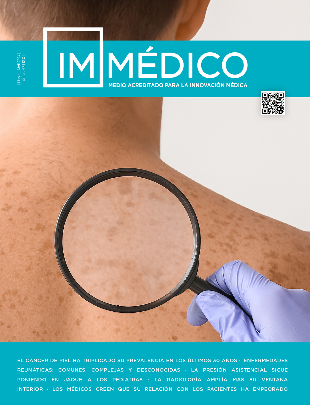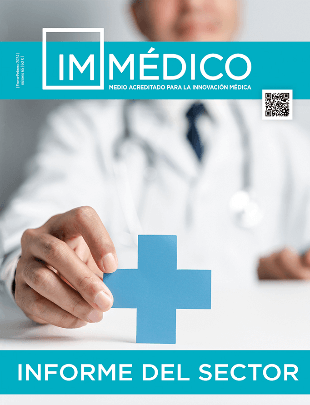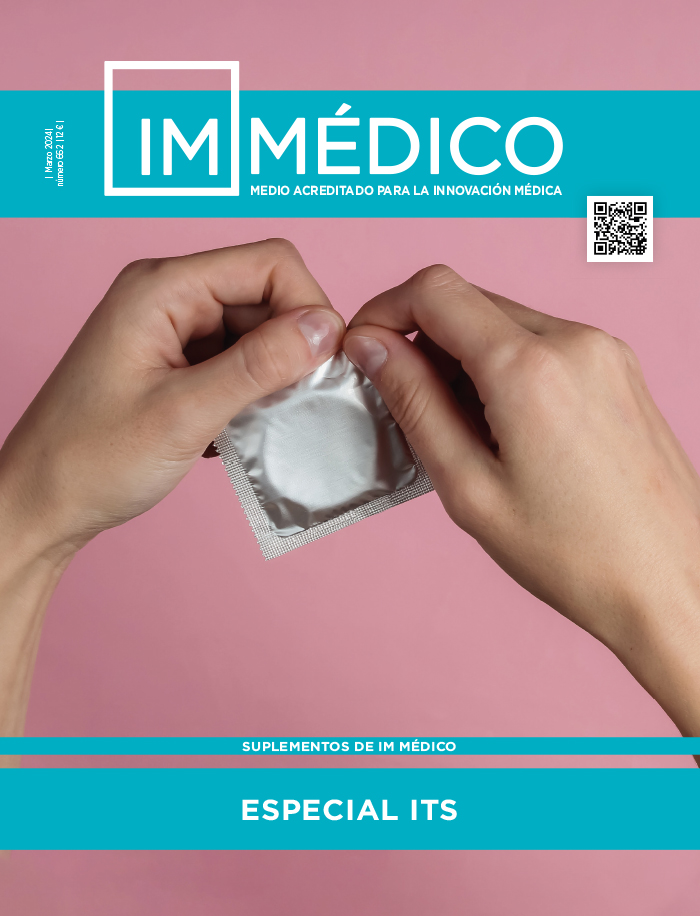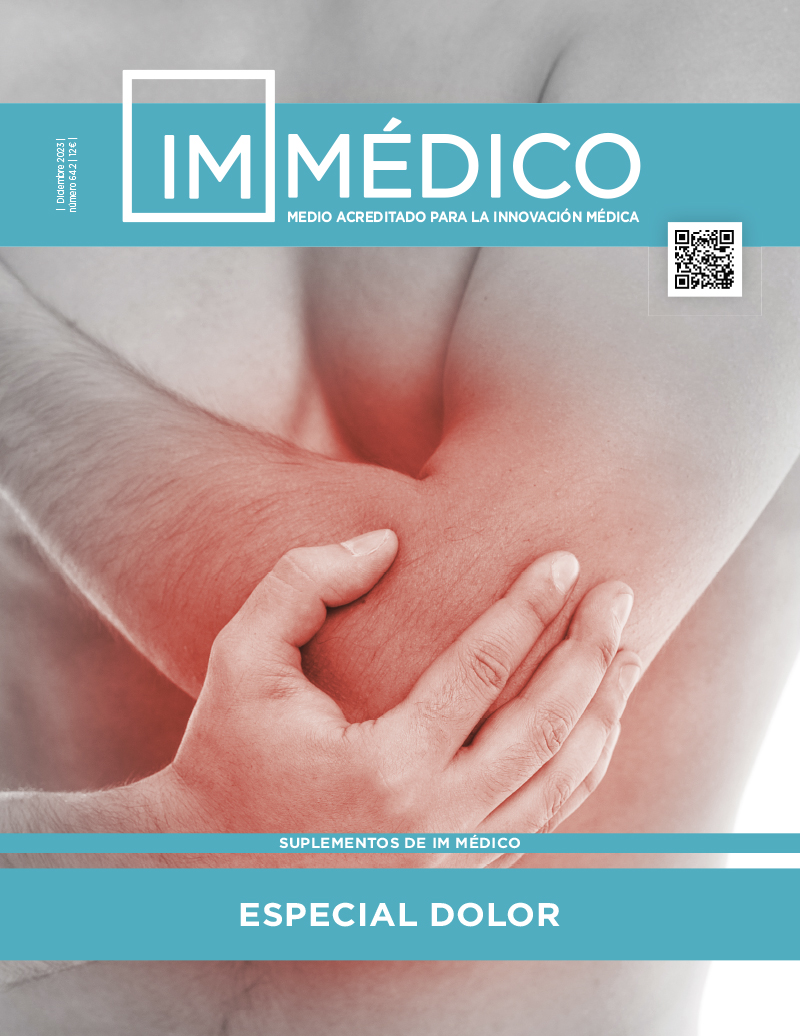Covid-19 in immunocompromised people
An Australian study will observe and evaluate the impact of coronavirus on people with compromised immune systems, in order to uncover potentially life-saving information about how alterations in the immune system affect Covid-19 infection.
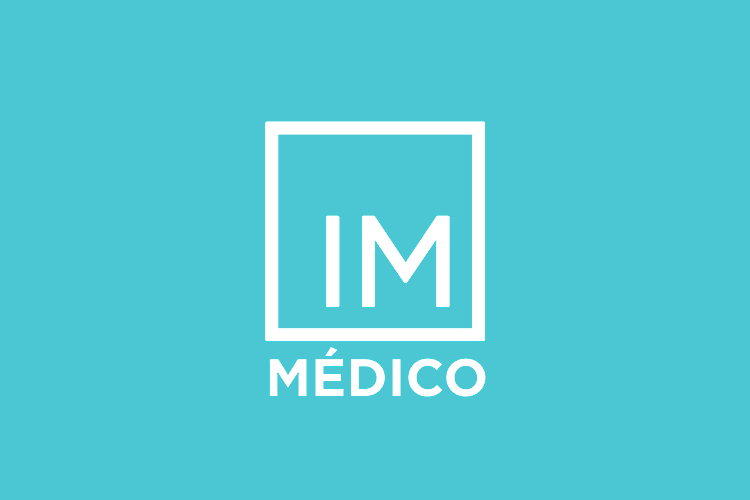
A world-first Australian study will observe and evaluate the impact of Covid-19 on people with compromised immune systems, in order to uncover potentially life-saving information about how alterations in the immune system affect Covid-19 infection. Coordinated by the Kirby Institute at UNSW Sydney, the study is a collaboration between a number ...
A world-first Australian study will observe and evaluate the impact of Covid-19 on people with compromised immune systems, in order to uncover potentially life-saving information about how alterations in the immune system affect Covid-19 infection.
Coordinated by the Kirby Institute at UNSW Sydney, the study is a collaboration between a number of Australia´s leading medical research organisations, including St Vincent´s Hospital Sydney, the Garvan Institute and Institute of Clinical Pathology & Medical Research (ICPMR) at Westmead Hospital.
Associate Professor Mark Polizzotto from the Kirby Institute said that we do not know enough about how Covid-19 impacts people with compromised immune systems. "While all Australians are rightfully apprehensive about contracting Covid-19, it is possible that people with compromised immune systems are at increased risk of serious consequences of infection."
This study will enrol people who have tested positive for Covid-19 and who are also either undergoing cancer treatment, have had a solid organ transplant or stem cell transplant, are living with HIV, have an inherited immunodeficiency, or are taking immunomodulatory therapies.
Phil Pryke has a blood cancer called multiple myeloma, which will ultimately require a stem cell transplant. While he has an extraordinarily positive outlook for his health, thanks in a large part to his experience of Australia´s health system as "truly world class", he has had to make big changes to his lifestyle to minimise the risk of contracting Covid-19.
"My partner and I only leave the house twice a week for my medical appointments, and I haven´t seen my children or grandchildren since January. We are being very careful, and are maximising protection wherever we can," he says. "I manage the need for isolation by having very open conversations with my medical teams, my family, my friends and my colleagues about where my health is at. This has opened up an incredible network of support for me."
"But with Covid-19 there are so many unknowns, especially for people like me with compromised immune systems. That´s why this research is so important. Clinicians need to know how to manage Covid-19 in people like me if I were to contract it."
Dr Barbara Withers is a haematologist at St Vincent´s Hospital Sydney, and is Mr Pryke´s doctor. She will lead the analysis of Covid-19 in people with cancer. "These population groups are typically more vulnerable to influenza and common coronaviruses, as well as to bacterial and opportunistic infections. We also know older people are at higher risk of severe Covid-19 infection."
"Given many of our patients with cancer are over the age of 65, this may increase their risk on two fronts. This study may also provide information about whether certain cancer therapies are associated with higher risks of severe infection."
The potential to accelerate promising therapies to controlled trials
Dr Sarah Sasson, an immunologist at the Kirby Institute, NSW Health Pathology and ICPMR at Westmead Hospital is leading the analysis of immune therapies. She says that the study may also offer the possibility of accelerating the identification of promising therapies for Covid-19, which can then be prioritised for study in controlled clinical trials.
"For example, some of the most feared complications of COVID-19 appear to arise from an overactive immune response attacking the lungs late in infection. It is possible that immune therapies could dampen this overactive response, with potentially beneficial outcomes."
"If through this study we identify a treatment that appears to be protective against severe COVID-19, we can rapidly move it into the controlled trials, the gold standard to test whether a new treatment works."
The study will be conducted at approximately 30 clinical sites in Australia, and has been designed in close consultation with community organisations such as Positive Life NSW and Cancer Council. It is being funded by the Australian Government Department of Health, and Gilead Sciences. Associate Professor Mark Polizzotto is supported by a fellowship from the Cancer Institute of NSW.
Other collaborators include Kinghorn Cancer Centre, Holdsworth House, Cancer Council NSW, Melanoma Institute Australia, Royal North Shore Hospital, NSW Health Pathology, Westmead Hospital, Blacktown Hospital and St Vincent´s Health Network Sydney.
Nuestros Podcasts
- Los hospitales también son las primeras víctimas de la guerra
- Ya es tiempo de reivindicar el trabajo de los médicos investigadores jóvenes
- Acciones combinadas para mejorar la remuneración de los médicos
- Hacen falta más fármacos contra el cáncer de mama avanzado
- La mortalidad por infecciones superará a la del cáncer en 2050
- Autoevaluación plena para los médicos que realmente necesita este siglo XXI
- Un MIR sin genética clínica perjudica a médicos y pacientes
- Ya no es suficiente paliar la sintomatología de las enfermedades raras
- Proliferan algunas críticas hacia el modelo territorial de terapias CAR-T
- Antes que tarde se va a duplicar el número de pacientes tratados con CAR-T
- España suspende severamente en colaboración público privada hospitalaria
- 1.336 millones de euros parecen pocos para digitalizar la Sanidad
- Urge cuantificar cuántos melanomas podrían estar escapando a la inteligencia artificial
- Envejecimiento: Una sonda de síntesis viaja al encuentro de las células senescentes
- Todavía hay hospitales y regiones que dificultan la cooperación internacional de sus médicos
- Llega la cuarta generación en aceleración de partículas para uso también en medicina
- El ejercicio físico puede reducir en algunos tumores hasta un 30% la incidencia
- Las organizaciones sanitarias ansían ir más allá de las listas de espera
- La alianza entre prevención y nuevas terapias derrota la enfermedad renal grave
- Reclaman especialización y superespecialización para la cirugía del cáncer de ovario
- España aún no está preparada para la nueva era en Alzheimer
- Madrid dispone de doce millones de euros para tratar las amiloidosis
- Ahorrar en sanidad ya no exige dejar de invertir en fármacos
- Datos, acceso y financiación marcarán el ritmo en enfermedades raras
- Europa busca su mejor modelo de atención en Enfermedades Raras
- Los estudios de neoadyuvancia marcan estilo de colaboración en cáncer
- Los polímeros terapéuticos incrementan las opciones en Nanomedicina y cáncer
- La innovación en fármacos reduce la mortalidad por cáncer
- Llegan nuevos fármacos para meter en cintura a la obesidad
- La medicina privada suma especialidades a su actividad investigadora
- A la caza de drivers oncogénicos frente a tumores digestivos
- Diez razones para no temer a la ciencia en los próximos 100 años
- España y Alemania lideran los puntos de terapia con radioligandos para el cáncer
- La profilaxis ahorra hospitalizaciones por sangrados en Enfermedad de von Villebrand
- De Atapuerca hasta hoy la última frontera en medicina sigue estando en el cerebro
- Europa busca su modelo de acceso al mercado para los nuevos fármacos en el contexto mundial
- Nuevas terapias lanzan la nueva generación terapéutica en Hematología y cáncer
- Europa divaga entre sus carencias en salud mental y sus posibles mejoras
- Extrapolar la curación del cáncer de ratones a humanos parece un poco más cerca
- Perplejidad por la falta de registros de adherencia y supervivencia en el país
- Los hospitales buscan vías para combatir mejor las infecciones en catéteres
- Europa encara riesgos de deslocalización para sus biosimilares
- Amenazas informáticas se ciernen sobre los equipos de diagnósticos
- La digitalización hará posible un sistema sanitario más accesible, robusto y funcional
- Especialistas y pacientes reclaman más investigación en adherencia terapéutica
- La bioquímica de los ácidos nucleicos cruza el umbral de una nueva medicina
- La red nacional de metástasis cerebrales gana en madurez
- Las mascarillas higiénicas lideran la filtración a patógenos respiratorios
- Ser médica joven y especialista de familia dispara el riesgo de trastorno mental
- Encontrar antivirales resultará clave en la próxima pandemia
- La Medicina ya no tiene miedo a la Inteligencia Artificial
- El Derecho se moviliza para intentar proscribir los ingresos involuntarios en Psiquiatría
- El rastro del cáncer persigue a muchos pacientes aún después de curados
- La OMS celebra la segunda vacuna para la malaria y valida su uso a escala mundial
- La cuenta atrás contra la bronquiolitis ya ha comenzado
- Algunas cirugías de nariz todavía no despejan todas sus dudas
- La Otorrinolaringología tiene mucho que decir en tumores de cabeza y cuello
- Biomarcadores y epigenética suponen las promesas más recientes en ELA
- La Cardiología moviliza a los pacientes para reducir las altas tasas de mortalidad
- Europa debe correr, si quiere cumplir sus compromisos contra el cáncer
- La experiencia del paciente conduce a mejores resultados clínicos en Estados Unidos
- La salud global exige no perder de vista ni la Covid-19 ni las migraciones de mosquitos
- Sobrevivir al cáncer más tiempo exige vigilar también el riesgo cardiovascular en niños
- Salvo excepciones, los anticoagulantes directos no están indicados en SAF
- Crece la preocupación global e implicación mundial para frenar el cáncer en Pediatría
- Con vuelco o sin vuelco electoral, la sanidad privada querrá contribuir más
- Algunos médicos temen ser suplantados pronto por la inteligencia artificial
- Dar la espalda a la innovación condena a un deficiente funcionamiento del sistema sanitario
- La Inteligencia Artificial conecta a los médicos dentro y fuera de la industria
- La inmunoterapia en adyuvancia mejora pronósticos en ciertos tumores no avanzados de pulmón
- La salud mental perinatal quiere pero no puede pasar de la teoría a la práctica
- Crece la confianza de los médicos en los biosimilares y biológicos de referencia
- Los médicos sienten el respaldado de sus colegios pero no tanto el de sus superiores
- Un hemograma basta para poder detectar la leucemia más prevalente
- La hematología se mantiene en punta de lanza contra el cáncer
- La Oncología busca células durmientes para reducir la mortalidad por metástasis desde mama
- La cirugía ortognática destaca en apnea del sueño, estética facial y salud oclusal
- “La llegada de biomarcadores y de terapias coagulantes marcan el avance de la Neumología en España”
- La inteligencia artificial se prepara para ordenar la ingobernable estructura de datos clínicos
- Europa se juega su futuro como región generadora de innovación para la salud
- Antiprecariedad, salarios europeos y formación continuada resultan claves para salvar el sistema sanitario
- Cada vez resulta más complejo incorporar nuevos medicamentos al sistema sanitario
- La estrategia estatal de salud mental suspende en financiación
- Los copagos disparan los costes por medicamentos en Estados Unidos
- Terapias génicas y también clásicas quedan fuera del alcance de muchas personas con hemofilia
- Pandemias mundiales requieren un marco legal igualmente global
- Confundir lo sanitario con lo social impide coordinar mejor el modelo asistencial
- “El mayor desafío es que la innovación llegue de manera equitativa a todas las CCAA”
- La profesión médica española se pone a la vanguardia deontológica de Europa
- Aún es posible salvar una sanidad deprimida, fragmentada y en ascuas
- La impresión 3D aspira a producir grandes series cortas de prótesis médicas
- El cáncer no parece ser una prioridad país para España
- One Health: Visiones múltiples desde Europa para ayudar a una misma Salud
- Tork apuesta por la IA para ayudar a mejorar la higiene de manos del personal sanitario y de residencias
- El metabolismo tumoral propicia nuevos tratamientos contra el cáncer
- España dispondrá en breve de un catálogo de biomarcadores para el cáncer
- Europa quiere órganos en chips para revolucionar la innovación terapéutica
- La atención oncológica en España, tan lejos como cerca de Europa
- No sólo la precariedad laboral lesiona el liderazgo clínico de los médicos
- La bioimpresión 3D se prepara para dar vida a nuevos órganos humanos
- Europa quiere volver a ser líder en ensayos clínicos
- "Estamos para defender, velar y cuidar de la salud de las mujeres"
- Faltan en los hospitales consultas monográficas de enfermedades de transmisión sexual
- Más medicamentos huérfanos y mejores diagnósticos moleculares alivian el peso de las enfermedades raras
- Linfocitos de tumor infiltrantes, fusógenos y fábricas de citoquinas marcan rutas en terapia celular
- El desarrollo de las naciones va ligado a su abordaje de las enfermedades raras
- El 88% de la población está a favor de que sus informes médicos sean compartidos entre los profesionales
- Las sociedades científicas buscan un punto de inflexión en cáncer
- La genética avisa de riesgos en cáncer, infarto, Alzheimer y patología mental
- Es un reto que los biomarcadores exploratorios lleguen a ser funcionales y validados
- Vuelta a la mortalidad por Covid-19
- Proyectos locales de regeneración tisular pugnan por obtener su viabilidad financiera
- Los ensayos digitales convierten a pacientes y compañías en partners
- Los ensayos digitales convierten a pacientes y compañías en partners
- La caída de patentes anuncia un menor consumo farmacéutico para los próximos años
- Apenas existe un centenar de nanomedicamentos en el mundo
- La Farmacia Hospitalaria apoya la humanización basada en tecnología y personalización
- Administraciones e industrias de tecnología sanitaria buscan mejores dinámicas de compra
- Rechazo desde la sanidad privada a la gestión directa excluyente para los hospitales
- Rechazo desde la sanidad privada a la gestión directa excluyente para los hospitales
- Estados Unidos aprueba su biosimilar número 40
- Cartílago y músculo, entidades más propicias para la regeneración de tejidos
- Laboratorios del mundo trabajan por un planeta más sano, justo y con mejor acceso a las terapias
- La evidencia clínica tomada de la vida real propicia nuevas indicaciones para las terapias
- Apenas el 20 por ciento de los IPT incluye evaluación económica sobre las nuevas terapias
- Reino Unido analiza el delicado papel a jugar por las salas virtuales hospitalarias
- Radiómica y PET son el nuevo desafío para las metástasis cerebrales
- Digitalizar ensayos clínicos favorece la participación de pacientes
- Más muertes por suicidio y sin plan estatal de prevención
- La singularidades de los pacientes conduce a ensayos clínicos más precisos
- Coartar la libertad y la competitividad terapéutica frustra la innovación en medicina
- A mayor novedad de los medicamentos, mayor esperanza de vida en cáncer
- Falta diligencia en Europa para conocer mejor y frenar la Dermatitis Atópica
- La profesión médica redobla ilusión aunque sin cerrar los ojos a la realidad
- “Seguimos trabajando para que nuestro cerebro enferme lo menos posible y lo más tarde posible”
- “Los nuevos tratamientos permiten creer en la curación de las enfermedades neurológicas en un futuro próximo”
- Falta de personal y altos costes anticipan una ola de trastornos ingobernable en salud mental
- Detectar co-mutaciones en cáncer de pulmón plantea dilemas clínicos no resueltos
- Nueva presidencia y apoyo psicológico acuden en auxilio de los estudiantes de Medicina
- Sólo la digitalización aliviará la disparada epidemia de fibrilación auricular, insuficiencia cardíaca y muerte súbita
- El exocerebro invita a comprender la relación entre cerebros, conductas y patologías mentales
- Reino Unido avanza en la seguridad para el paciente mediante monitorización remota
- Médicos, laboratorios y pacientes reclaman más transparencia y mayor rapidez en los IPTs para Oncología
- Oncología, salud mental, raras y neonatología rural, premiadas por la profesión médica
- Decisiones clínicas más fundadas en cáncer de pulmón, mediante Inteligencia Artificial
- Investigación y pérdida de patentes modulan un mercado farmacéutico europeo en la encrucijada
- Han aparecido nuevos FÁRMACOS que permiten avanzar en el tratamiento de la INSUFICIENCIA CARDÍACA
- “Estamos obsesionados con la calidad, y para ello estamos convencidos de que hay que medir”
- “Es preciso que los servicios de cardiología estén dotados de suficientes profesionales”
- La agilización de visados de fármacos redunda en ventajas para médicos y pacientes
- El 68 por ciento de las terapias que están al llegar es de base biológica
- Inmunoterapia y radioterapia aún no riman demasiado bien en cáncer
- La inmunoterapa traza nuevas vías para bloquear el escape inmunológico de los tumores
- La salud digital se enfrenta a desafíos dignos de todo su potencial
- Europa busca su propia fábrica de células estandarizadas y aptas para futuras terapias avanzadas
- China toma ventaja en la investigación de terapias CAR-T
- Los tumores de piel ensombrecerán las cifras del cáncer en España
- La monitorización remota en insuficiencia cardiaca consigue buenos resultados en Reino Unido
- El grafeno se prepara para ser el material "milagro" de la medicina del siglo XXI
- El sistema de precios de referencia causa la pérdida de medicamentos valiosos y anuncia desabastecimientos
- Europa quiere más ciencia médica abierta para el continente
- Ciencia, marketing, alianzas y logística contribuyen al éxito de las terapias génicas
- La enseñanza de la medicina se salvará con educación médica o no se salvará
- Cómo controlar mejor la diabetes, la importancia de la adherencia al tratamiento
- La salud de la piel, otro daño colateral de la pandemia
- Europa responde con parsimonia a las urgentes demandas de los pacientes con enfermedades raras
- La pandemia, el punto de inflexión que marcó una nueva era en la ingeniería hospitalaria española
- Levantar hospitales desde el suelo es más rápido y funcional que remodelar los antiguos
- España mejora en acceso CAR-T y potencia la evolución del paciente trasplantado de médula
- Ayudas millonarias desde Europa para innovar en cáncer, neurodegeneración y área cardiovascular
- Canadá se confirma como modelo de armonización sanitaria y sociosanitaria para España
- Dosis discontinuas o desiguales con protonterapia rompen mitos en cáncer
- Todavía no se secuencian las muestras de viruela del mono en España
- Cae la percepción de buena salud entre los jóvenes de 15 a 29 años
- 1 de cada 10 plazas de pediatría no están cubiertas en España
- Startups, hospitales y compañías de alían para encontrar soluciones tan inspiradas como factibles
- “Hay déficit de profesionales y plazas de pediatría cubiertas por otros médicos no pediatras”
- Las vacantes MIR sólo son un aviso más del grave deterioro sanitario en marcha
- “Aún no se han recuperado los niveles previos a la pandemia, lo que ha supuesto un aumento importante en las listas de espera”
- La prevención sigue siendo clave en una especialidad como Urología
- Especialistas refrendan el uso de anticoagulantes orales directos frente a eventos trombóticos atípicos
- La sanidad en 2025: más transversal, digitalizada y con el paciente en el centro
- Modelos anatómicos en 3D cada vez más perfectos hacen posible la cirugía digital realmente prometedora
- Europa no garantiza una salud cardiovascular plena y homogénea
- Preocupa el abandono terapéutico debido al precio de los medicamentos en Estados Unidos
- Los medicamentos apuntan a una tercera dimensión con la impresión 3D
- La dermatología ante los retos del siglo XXI
- La ingeniería hospitalaria ha de conseguir que toda la asistencia sea más eficiente
- “Atención Primaria tiene un papel fundamental en la prevención del cáncer cutáneo”
- “Cada vez sabemos más sobre el melanoma y hay mutaciones concretas frente a las que podemos actuar”
- Siguen las pesquisas mundiales para encontrar al culpable de las hepatitis infantiles
- “En España no hay una asistencia igualitaria en todos los territorios”
- Ganar tiempo al tiempo fue la base del éxito de las vacunas Covid
- La Cardiología se encamina hacia algunas de sus últimas fronteras
- La industria farmacéutica europea quiere recuperar terreno cedido a Estados Unidos y China
- La FDA alerta sobre el peligro de leer mal los test de cribado prenatal
- Las parálisis cerebrales reclaman un nuevo sistema sanitario basado en la cronidad
- La Oncología mira a Málaga para saber todo lo que puede esperar de la Inteligencia Artificial
- Los hospitales se acercan al gran desafío de una nueva interoperabilidad
- Hace falta una vacuna más potente para la malaria
- Mejoras en la atención y cuidado de la Diabetes
- Equidad en la prevención, diagnóstico y tratamiento del cáncer
- Oncología, Neurología y Covid multiplicaron los lanzamientos de nuevos fármacos en 2021
- El primer libro blanco de la adherencia pondrá de relieve un problema que ya es reconocido
- “La medicina de precisión es dar el tratamiento adecuado, en el momento adecuado y al paciente adecuado”
- El Decálogo de la Rehabilitación: la importancia de incrementar los recursos y mejorar los procesos de rehabilitación
- Rehabilitación, indispensable y de cobertura universal
- “La rehabilitación en Covid busca la causa de la fatiga y mialgias para un mejor tratamiento”
- La imposibilidad de hacer registros hospitalarios de pacientes evidencia la falta de integración sanitaria
- Ya es posible diagnosticar 50 enfermedades genéticas con un solo test en apenas días
- La versatilidad de la Inteligencia Artificial aspira a cubrir todas las necesidades hospitalarias
- La anatomía patológica extrema sus precauciones al saltar de la biopsia a la pantalla digital
- La Radioterapia Guiada por Superficie (SGRT) se abre camino en España
- La Unión Europea cambia este año su política de medicamentos huérfanos
- La toxina botulínica refrenda su eficacia ante la salivación excesiva por Parkinson
- Los oncólogos buscan apoyos para evitar que muera una persona por cáncer cada 5 minutos
- Viagra podría mejorar la supervivencia en tumores de pulmón y colon
- La bioimpresión criogénica apunta a la generación artificial de estructuras musculares humanas
- “Las investigaciones pasan por el rejuvenecimiento ovárico y el diagnóstico genético preimplantacional”
- Estamos elaborando una revisión exhaustiva de la evidencia científica sobre la influencia del calentamiento global en la enfermedad alérgica
- Cuatro profesiones sanitarias se unen para identificar a los pacientes con Covid persistente
- Horizonte incierto tras dos años de pandemia
- Mitos y realidades de la vacunación: los bulos que rodean las vacunas
- Hay algo que es fundamental: de está, o salimos todos o no salimos ninguno
- Tiempo en Rango en el control de la diabetes, todo lo que hay que saber
- Rezum es la técnica para reducir la próstata que menos afecta a la eyaculación
- Prosigue el goteo de números rojos en Urología
- Se buscan nuevos mecanismos moleculares de la fisiopatología para identificar nuevas dianas terapéuticas para la HAP
- Queremos subrayar la magnitud del problema sanitario que las enfermedades respiratorias representan en nuestro país
- Diagnosticar las enfermedades minoritarias pulmonares de forma veraz, segura y rápida es primordial para la calidad de vida de los pacientes
- Los estudios se enfocan en la mejora de la caracterización por fenoendotipos del asma grave
- El Hospital Vall d´Hebron, emblema de la cirugía robótica
- CARDIOPATCH, tecnología de vanguardia para la reparación del infarto de miocardio
- Resistencia antimicrobiana, la otra `pandemia latente´ que amenaza a la salud pública
- Esperanzadores avances de la terapia CAR-T contra el cáncer
- Dieta y terapia preparatorias mejoran la salud digestiva en trasplantados por mieloma múltiple
- El Centro Internacional de Neurociencias, un nuevo espacio de investigación multidisciplinar sobre el cerebro y sus patologías
- Hidradenitis: Demandamos investigación, accesibilidad e información
- Bypass urgente a la innovación para el mercado cardiovascular
- "Donde más se está investigando es sobre el manejo adecuado de las formas clínicas graves y complejas del melanoma"
- Aragón medical city
- Seguridad del proceso farmacoterapéutico y la contribución del farmacéutico hospitalario



